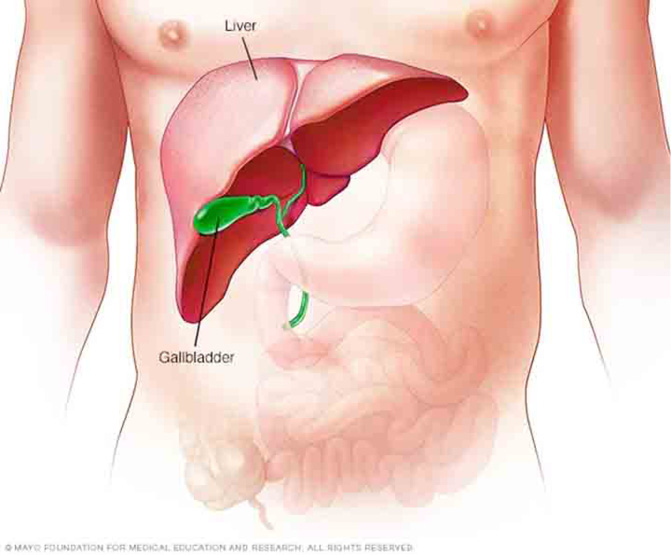Signs of liver damage
Your liver is a workhorse, and it doesn’t get the respect it deserves. If you asked most people to rank their organs, their liver might be way down the list. Many people are now diagnosed with Liver Cancer Woman delivers baby under Lagos bridge Maybe just above spleen. But day and night, it breaks down […]

Your liver is a workhorse, and it doesn’t get the respect it deserves.
If you asked most people to rank their organs, their liver might be way down the list.
Maybe just above spleen. But day and night, it breaks down food, fights infection, and filters bad stuff from your blood.
You can’t live without it. Luckily, you can often slow, stop, or even reverse liver damage.
- How Problems Progress
Lots of things cause liver damage, and it tends to get worse over time.
No matter the cause, it usually unfolds the same way.
First, your liver swells. Then it gets scars (called fibrosis).
With treatment, your liver may heal. But without it, over time, the scars become permanent (this is cirrhosis) and your liver struggles to do its job.
Last comes liver failure, which is life-threatening. It means your liver has stopped working or is about to.
- Symptoms
At first, you probably won’t notice liver problems.
But as it gets worse, your skin can feel itchy and bruise easily.
Your eyes and skin may look yellowish, which doctors call jaundice.
Your belly might hurt, and you could lose your appetite or feel sick to your stomach.
Your legs, ankles, and belly may swell, too.
- Acute Liver Failure
Most liver disease is chronic.
It happens slowly over years.
But sometimes, it comes on fast.
While the symptoms are the same – including jaundice, pain, and upset stomach – acute liver failure takes only weeks or even days.
And it can be life-threatening. See a doctor right away when you have symptoms.
- Causes
Some liver problems are related to diseases and other health conditions.
Others have to do with your lifestyle, which you have some control over — like how much you drink and how much (or little) you exercise.
Although rare, pregnancy may contribute to liver problems.
- Obesity
As the country has gotten heavier, rates of liver disease have gone up.
Extra weight raises your odds of non-alcoholic fatty liver disease when fat builds up in your liver.
Most of the time, this condition is harmless.
But for some people, it gets worse and leads to cirrhosis and other problems.
- Alcohol
Heavy drinking is tough on your body.
The liver’s process of filtering alcohol out of your blood creates harmful chemicals.
Drink too much booze for too long a time and those chemicals damage your liver.
The first stage of alcoholic liver damage, when extra fat builds up, is called alcoholic fatty liver.
If you keep drinking, you’re likely to get alcoholic hepatitis, cirrhosis, and eventually liver failure.
- Drugs and Chemicals
Helpful medications and supplements can sometimes cause acute liver damage, including some antibiotics, acetaminophen, and NSAID pain relievers like ibuprofen and naproxen.
Usually, it happens only when you take a very high dose or mix these with alcohol or other drugs.
Street drugs like heroin and cocaine also cause liver damage.
So can herbal remedies and supplements, as well as some chemicals used in dry cleaners and factories.
- Infections
Hepatitis (including A, B, and C) and other viruses can cause acute or chronic damage to your liver.
Your chances of getting hepatitis are higher if you share needles when you use drugs, have unprotected sex, have sex with a lot of people, or live in areas where food or water isn’t safe.
- Genetic Problems
Some people are born with rare conditions that can cause liver disease.
Symptoms may show up when they’re babies or not until 40 or 50 years later.
Alpha-1 antitrypsin deficiency (A1AD) means your body doesn’t make enough of a special protein that protects against liver damage.
Hemochromatosis lets too much iron build up in your liver. Similarly, someone with Wilson disease will have too much copper in their liver.
- Treatment
In the early stages of liver disease, lifestyle changes can often heal liver problems completely.
Even with advanced disease, they can often limit the damage.
Medications such as steroids, surgery, and other treatments may also help slow down or stop liver disease.
- Stop Drinking
Whether your disease is mild or severe, your liver will be happier if you quit. Can’t do it on your own?
Speak up. Ask your doctor for help getting into a treatment program.
To help prevent liver disease, limit yourself to no more than one drink per day for women, two for men.
- Eat Well and Exercise
If you’re heavy, try to lose some weight.
It can improve your liver health and even cure some types of early-stage liver disease.
Regular exercise is great whether or not weight is an issue.
Eat a balanced diet, with lots of healthy grains, fruits, vegetables, and lean proteins.
Choose high-fibre foods, and limit high-fat things like fried foods as well as salt.
Courtesy: WebMD
